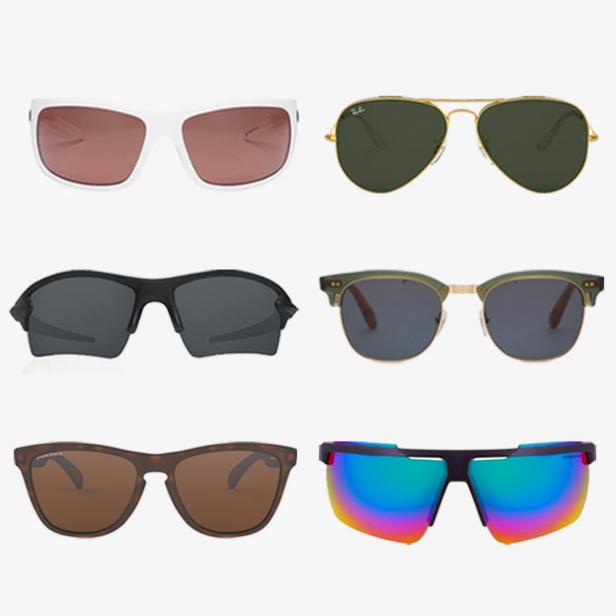Products You May Like
In golf, packing a quality pair of sunglasses is almost as important as remembering to bring your driver or a sleeve of balls. While not technically considered equipment, sunglasses—or lack of—can have a huge impact on your game. Improper eyewear on sunny days will make it harder to track the ball, read the greens and cause eye strain. Without UV blockers, you’ll also risk damaging your vision and the area surrounding the eye. An ill-fitting pair of shades will add unnecessary distraction or discomfort that can be a detriment to scores.
There are a lot of options available when it comes to shopping for golf sunglasses. It’s important to find a lens that blocks UV light and while most gravitate toward polarized sunglasses, that’s not always the best choice for golfers. Polarized lenses reduce glare and light reflections that can impede vision—but make it harder to read a putt when glare (sheen of grass) can be a tool.
Once you have the proper eye protection and lens technology down, you might be overwhelmed by the variety of frame styles. You’ll want to find a pair that fits both your personality and face shape. In general, you’ll want to find a frame that is the opposite of your face shape. Wider frames will lengthen your face for a flattering look for those with rounder faces or bigger foreheads. Those with more angular faces will benefit from a rounded frame like an aviator to balance their features out. If you’re still confused, don’t fret, we’ve rounded up the six types of golf sunglasses you need to know about.
RELATED: Sunglasses for the trendy golfer: 13 unique styles that are eye-catching with strong performance
*All products featured on Golf Digest are independently selected by our editors. However, when you buy something through our retail links, we may earn an affiliate commission.


